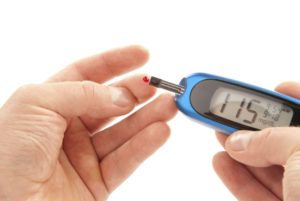As per the recent figures by the world health organization (WHO), the estimated number of people suffering from High blood pressure or otherwise known as “Hypertension” in the world is easily above 1 billion, if those cases were to form a country, it will be the third in popular ranking just after China and India!
In our article today, we will shed some light on this widely spread case that takes millions of lives yearly and forces changes on the lifestyle of its sufferers in order to reduce their risk of experiencing the worse.
What is blood pressure?
In order for our cells to receive oxygen, nutrients and other elements, they need blood, which is pumped out of the heart by its contractions, pumping or squeezing the heart causes blood to make its way through the arteries in a pulsar movement which we feel as beating, and each beat causes the blood to push on the inner artery wall in order to keep circulating, this “pushing” force is what is known as blood pressure.
What is the problem with high blood pressure?
The matter is very simple, when the blood pressure inside the arteries is high, the internal walls of those arteries will develop tiny cracks, which provides the best place for the bad cholesterol to gather up and form plaques, and those plaques will make it harder for the blood to flood in those arteries, so what does the heart do? It tries to work harder in order to push the blood through those arteries and on the other hand, plaque is the major element in the recipe of strokes.
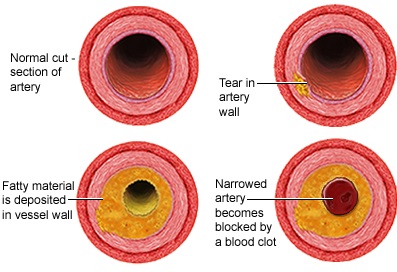
What are the symptoms of Hypertension?
Now, this is where hypertension stands out, Hypertension rarely has noticeable symptoms, no wonder why it is known as the “Silent Killer”. In few cases, the patient could suffer some headaches, shortness of breath or nose bleeding, but this only happens when the blood pressure is really high, otherwise, there are no other tangible symptoms.
So, what causes hypertension?
Let’s get something straight here, there are two types of hypertension, the first one is known as primary, which means that it is a stand-alone condition with un-identifiable or underlying reasons, while the second type is known as secondary, which means that the patient suffers from high levels of blood pressure due to other physical conditions (Like tumors or kidney diseases)
As said earlier, and despite the medical breakthroughs that we have achieved, we are still unable to identify the certain cause of hypertension in each patient, however, we have managed to narrow down a list of some risk factors which are as of the following:
Growing older
As we grow old, our blood vessels naturally lose their flexibility and become thicker, which makes them venerable to high blood pressure.
Genetics
As per the recent studies and researches, hypertension tends to run in the genes, it also can develop due to some perinatal genetical changes.
Race
According to the statistics, the percentage of hypertension patients from and African race is the highest globally, followed by Hispanic and Asians.
Unhealthy lifestyle
While all the above factors and obviously out of your hands, this one totally is, accordingly to the latest studies and statistics, bad lifestyle would most probably lead to hypertension, a bad lifestyle could entail being overweight (Obese), smoking, lack of physical activity, using alcohol, consuming foods that are high in salt and sodium, and well as the tension that we put ourselves into.
What are the complications of hypertension?
As we know by now, high blood pressure directly affects the overall condition on the arteries causing the blood to have a harder time passing through to vital organs in the body and therefore affecting several parts of our body, here are some examples:
Heart Attack
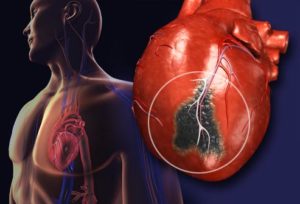
A heart attack happens when the blood supply to the heart itself is stopped or severely affected, this can happen if the coronary arteries are not in a good shape or contain plaque.
Stroke
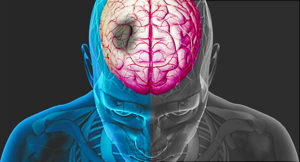
This case is witnessed when the walls of the arteries are thinning, and with high blood pressure passing through them, these thinned arteries tend to hold more blood in them and forming a shape that is balloon-like, and if this balloon bursts, it would to severe internal bleeding which might eventually cause death or stroke.
Heart Failure
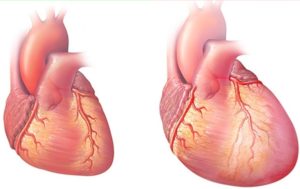
When the blood circulation resistance is high, the brain will sense it and put extra effort on the heart muscle to pump the blood out more aggressively, this condition leads to thickening in the heart itself (mainly the inner wall of the left ventricle) and might eventually lead to heart muscle stop and failure.
Dementia
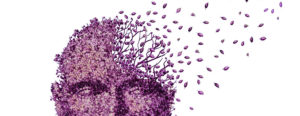
There are some case of Dementia that are caused due to hypertension as a result of narrowing and blockage in the feeding arteries which in result causes less blood to flow into the brain, the more the case goes untreated, the greater the risk.
Renal Failure
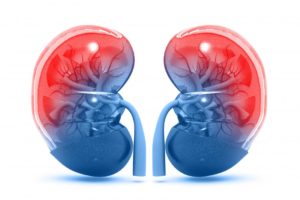
High blood pressure and its consequences limit the amount of blood flowing to the kidneys, the thing that makes their job harder.
How do I know if I have high blood pressure?
As we said before, this condition rarely shows any noticeable symptoms, so it can be there silently, all we can do is to perform regular blood pressure tests every once in a while.
What is blood pressure test all about?
It is a simple, non-invasive method of determining the amount of pressure caused on the walls of the arteries due to the flow of blood, the reading comes with two figures, the first one (High number) is the pressure when the heart contracts pushing blood out of it (Systolic) while the second figure (Lower number) is the pressure of the arteries while the blood relaxes to fill up with blood (Diastole)
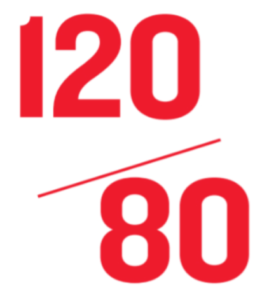
The normal blood pressure reading is 120/80, when the readings show 140/90 or above, this means that the person suffers from hypertension, anything in between is considered as an indicator for the person to pay attention to the situation.
What is it between salt and high blood pressure?
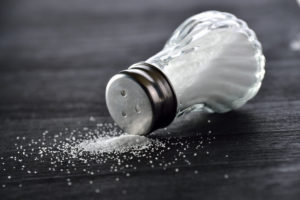
Ok, let’s break it down, Salt is 60% Chlorine and 40% Sodium, and the sodium in itself is an element that attracts the retention of water, so when we have high amount of sodium in our blood, this also increases the amount of water, and this increases the overall volume of the blood making the circulation of blood heavier and tougher, so simply, minimizing salt intake means lower blood pressure.
Since we are talking about sodium, it is worth noting that it is not only found in salt as we can find it in preserved and canned foods as well as processed meat.
What about low blood pressure?
This case is known as Hypotension, which is a less frequently happing case, it also has some effects on the body like fainting, dizziness and the sense on inability to stand up, and this is all due to the fact that low blood pressure causes less blood to flow to central organs in the body and mainly the brain.
Is Hypertension related to Diabetes?
In the last article we talked about Diabetes and we saw that it causes the wall of the arteries to become weaker, so if this case is combined with high blood pressure then the risk is increased, that is why it is always recommended to perform regular tests and checks.
As always, being able to notice bodily changes is very important, and when we discover any case early, the chances of survival significantly increase, so we should always be aware and initiative.
Stay Positive, Stay healthy, Stay grateful!
Back to Public Health Arena? click below


